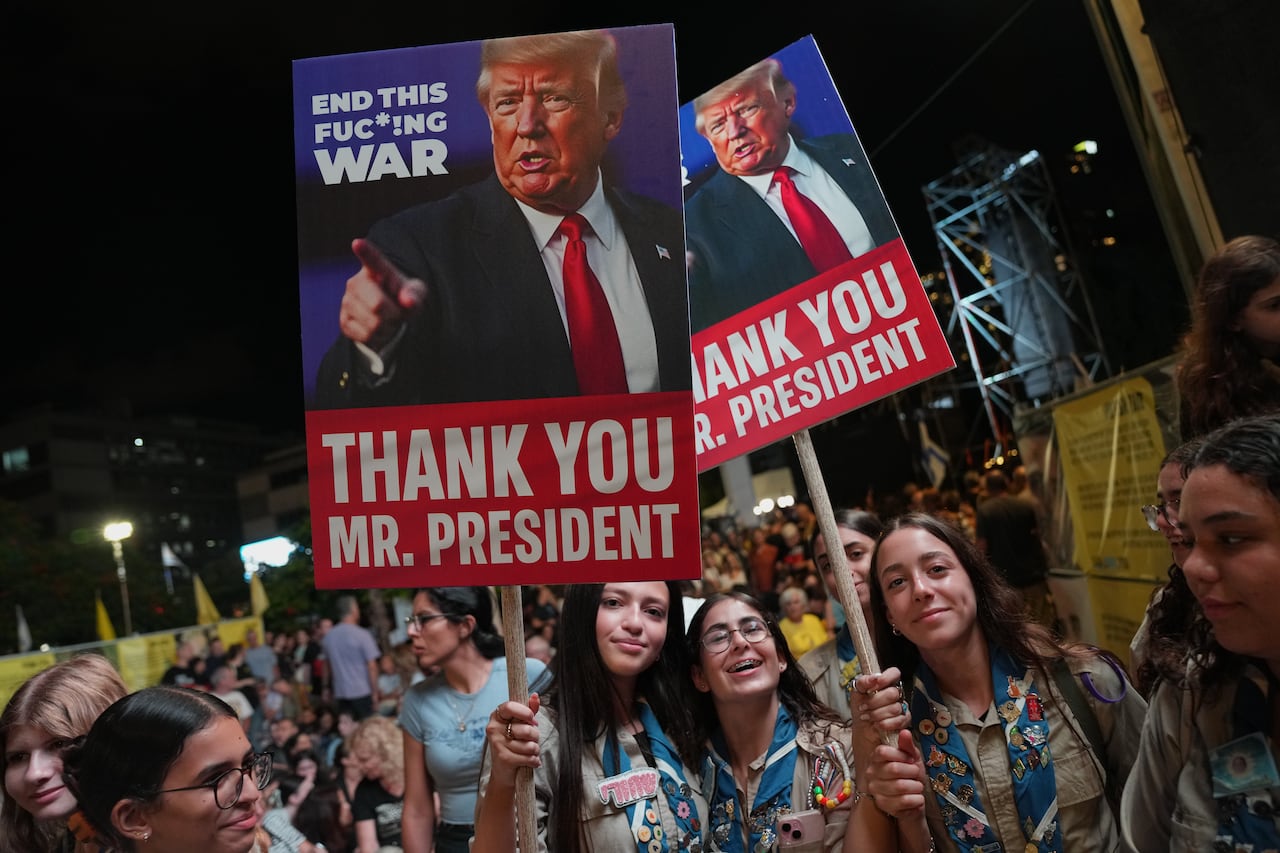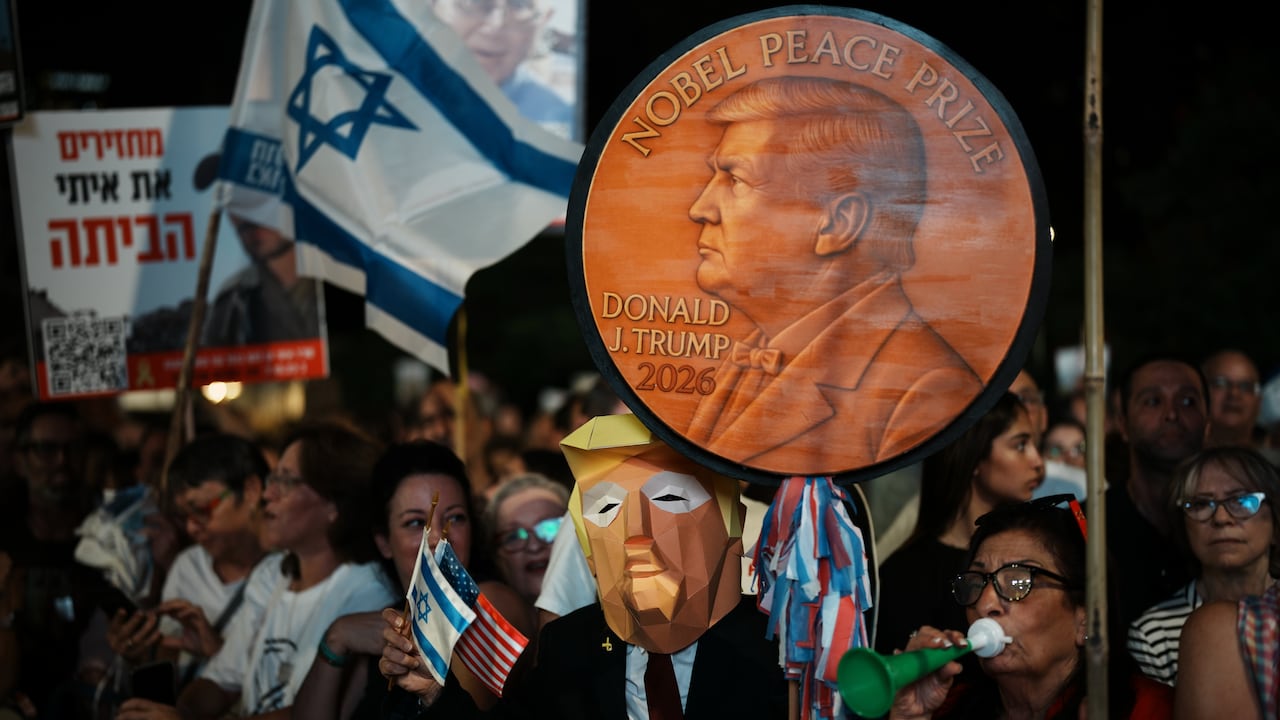As tens of thousands of Israelis crowded what has become known as Hostages Square in Tel Aviv on Saturday, a large black banner was unfurled. From above bright yellow lettering reads, “Nobel President Trump.”
It was unabashed praise for the U.S. president who didn’t win the prestigious peace prize after publicly campaigning for it, and who many Israelis credit for pushing through a ceasefire that promises the return of the remaining 48 hostages still in Gaza, 20 of whom are believed to be alive.
“We believe that he really worked hard for peace … and we are waiting to thank him,” said Miriam Ben Yehuda, who spoke to CBC News from Sderot, Israel, at a lookout point where it is possible to make out the ruins of Gaza in the distance.
“We need him to just keep doing the best to make sure that this deal is going to really happen.”
Trump is expected to arrive in Israel Monday morning to address the Knesset, the country’s parliament, and he will likely bask, if only briefly, in the appreciation that will be heaped upon him.
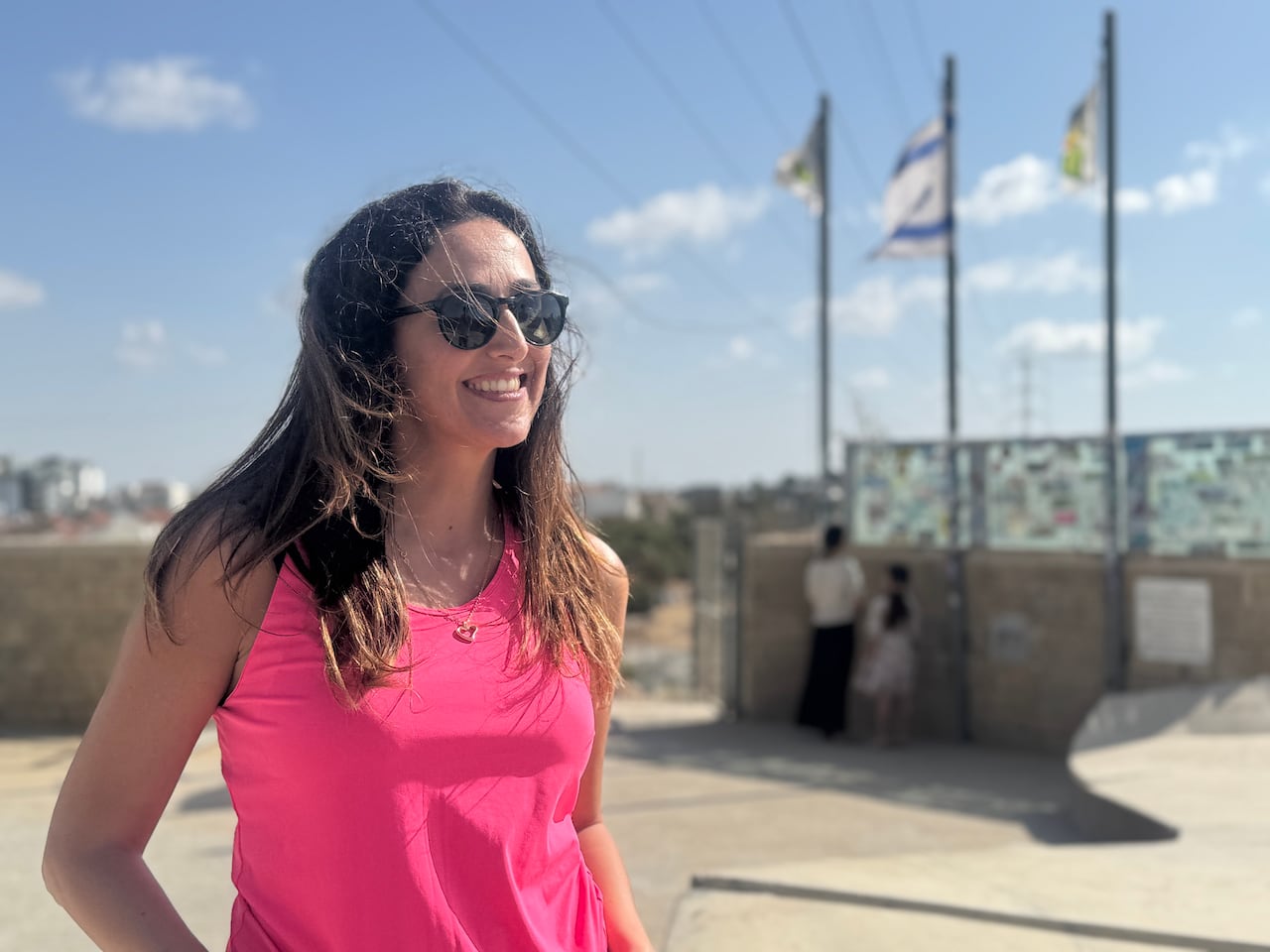
‘Forceful approach’
Along the main highway that links Tel Aviv and Jerusalem, American flags are affixed to light poles right beside Israeli ones.
In the centre of Tel Aviv, an electronic billboard compares Trump to Cyrus the Great, who according to the Bible is credited with liberating the Jews from Babylonia.
At a hostage square, another sign compares him to Oskar Schindler, who is credited with saving the lives of roughly 1,200 Jewish people by employing them in factories in occupied Poland.
As Rami Lador stands in Tel Aviv, he doesn’t make any historical comparisons, but carries an American flag as a sign of appreciation for what he described as Trump’s forceful approach.
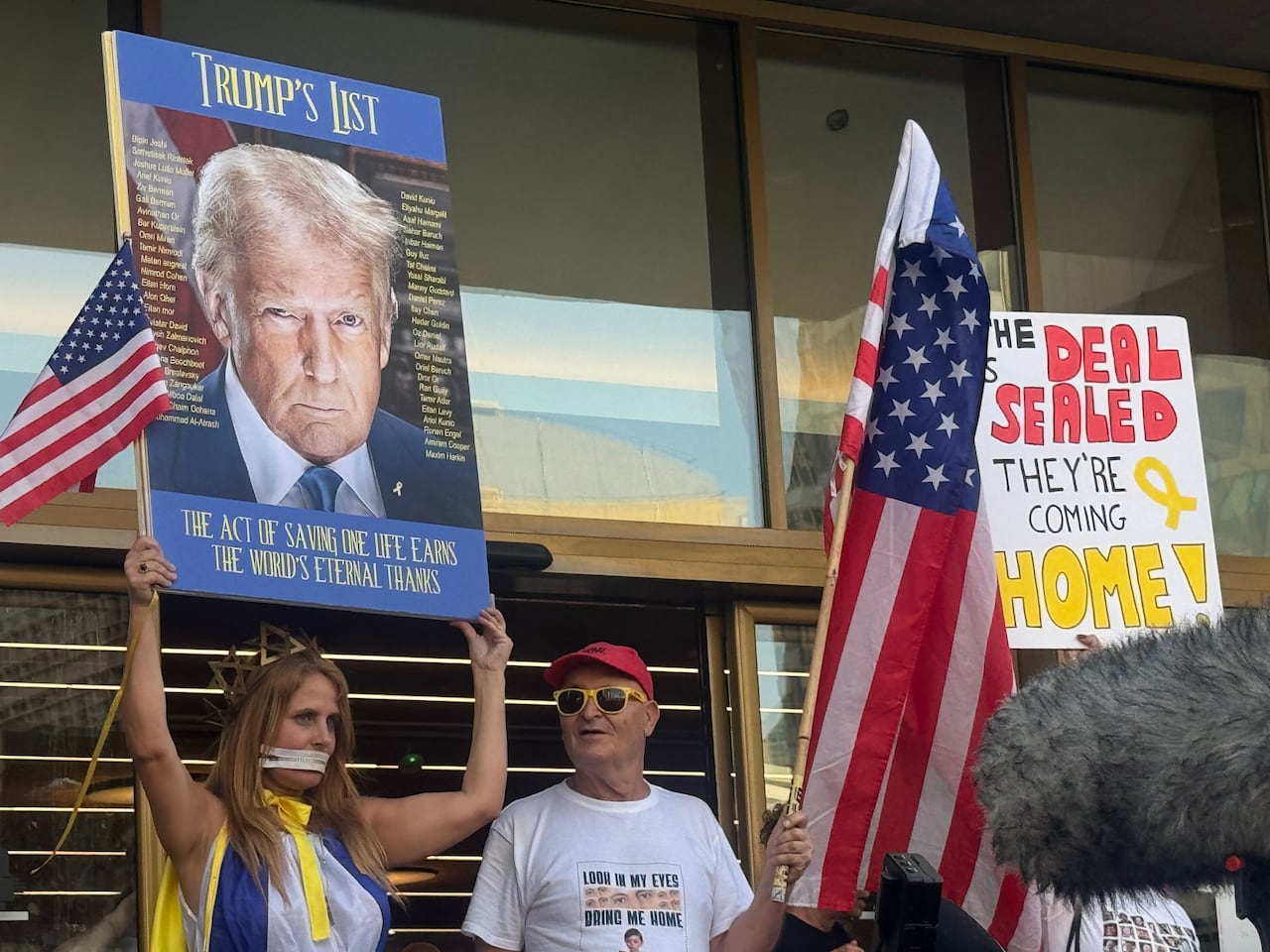
“When Trump said ‘all hell will break loose,’ he actually sent a message to the extremists on both sides, on the Israeli side and on the Hamas side,” said Lador who spoke to CBC News Saturday evening.
Trump has warned a number of times that he was prepared to unleash hell if Hamas didn’t agree to release the hostages.
Earlier this month, he reiterated that threat when he warned Hamas that it better accept his peace plan.
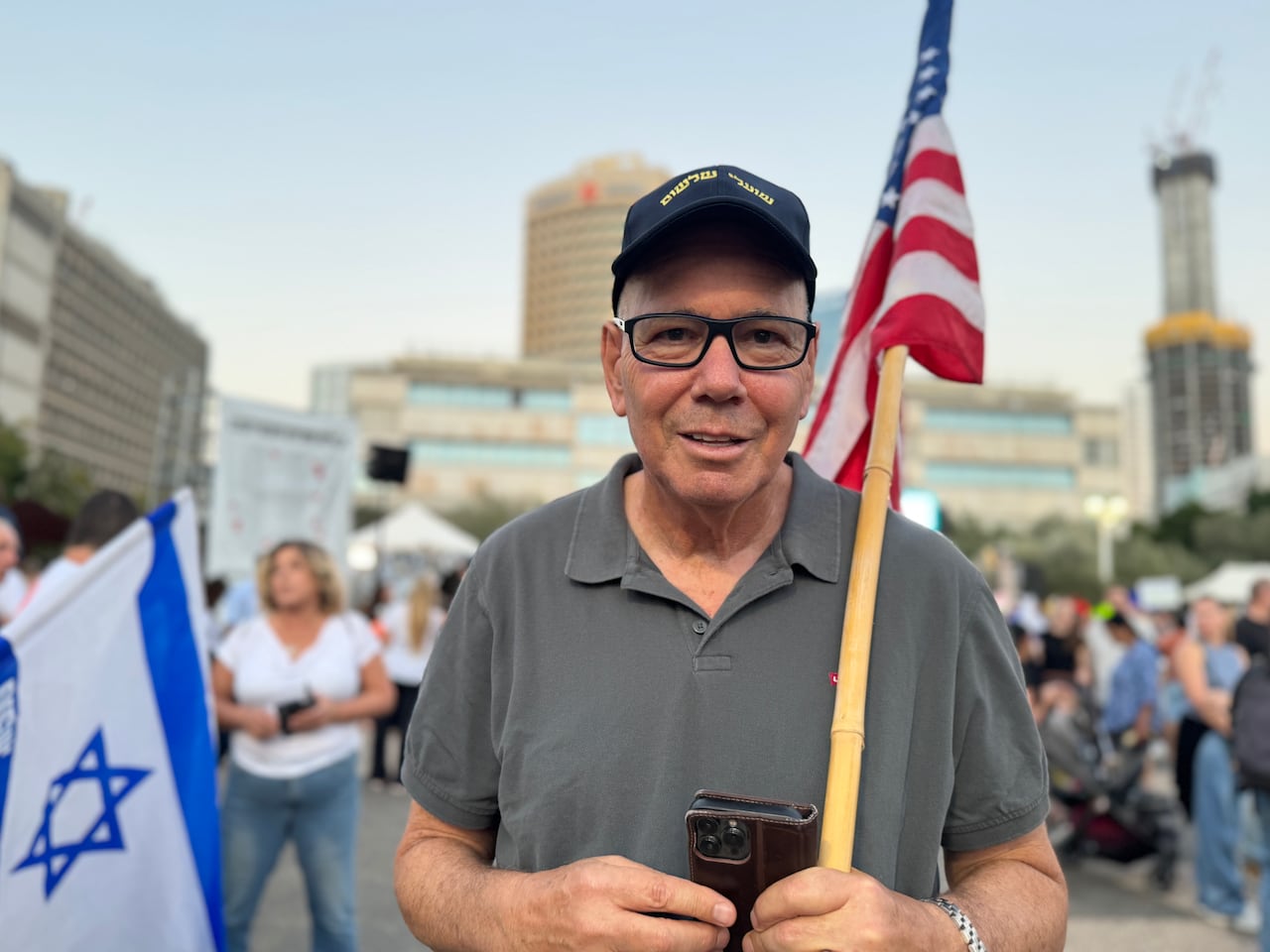
While some of Israel’s far-right politicians voted against accepting the agreement on Thursday, Trump was able to pressure Netanyahu to agree to it.
After Israel launched an airstrike on Doha, Qatar, in September, Trump publicly expressed that he was unhappy.
Netanyahu blamed
When Israel’s Prime Minister Benjamin Netanyahu visited the White House later that same month, Trump and Qatari Prime Minister Sheikh Mohammed bin Abdul Rahman al-Thani participated in a three-way call where Netanyahu expressed regret for the attack.
The call took place in the Oval Office, and a picture released of the event showed Netanyahu picking up the phone while surrounded by high-ranking U.S. officials.
It was after that call that momentum once again ramped up around the negotiations.
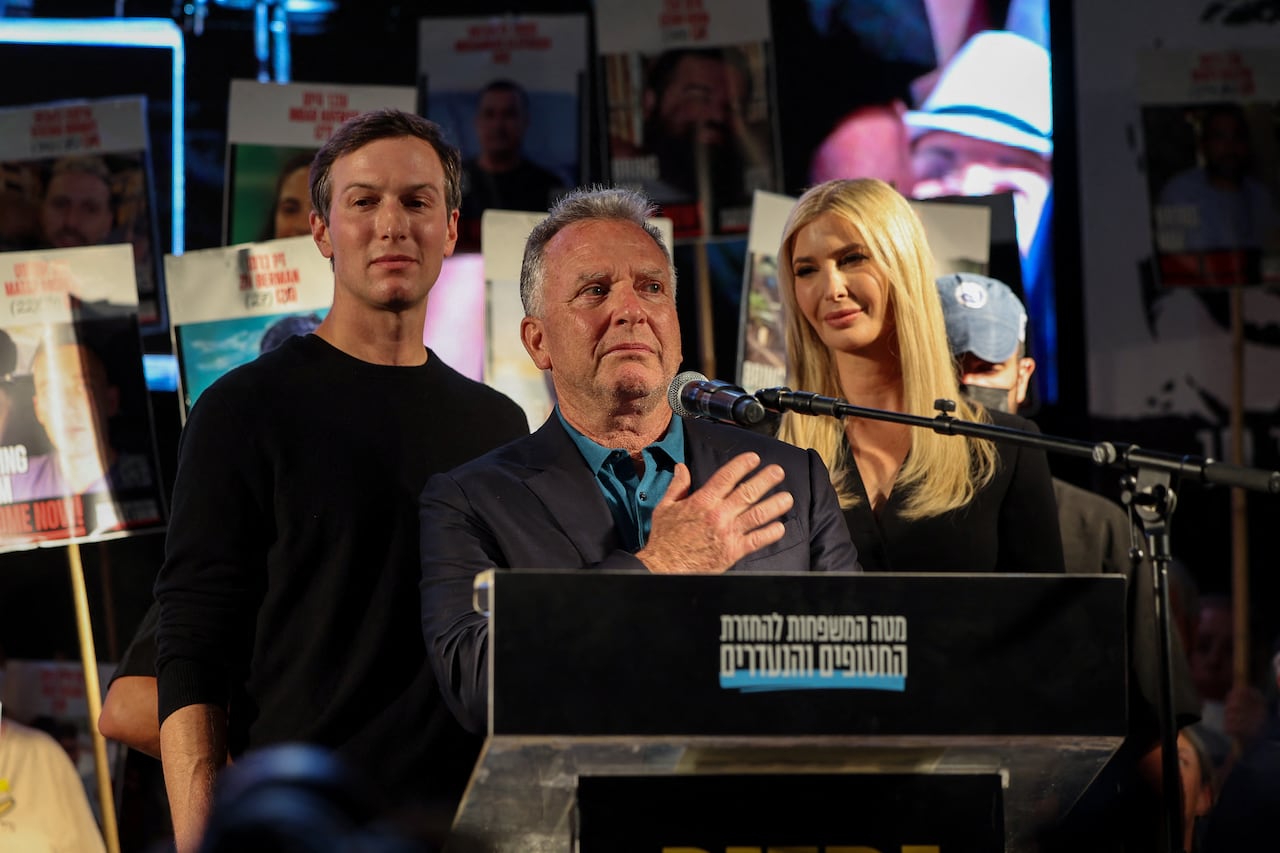
While Trump is being praised for what appears to be a major diplomatic win, it was his special envoy Steven Wikoff who frequently criss-crossed the Middle East, laying the groundwork for the talks.
As he spoke in Tel Aviv Saturday evening, he praised the Israeli people for their “unwavering spirit” and the “bold leadership of Trump.”
He then went on to thank other leaders for their tireless efforts, but when he mentioned Netanyahu, the crowd booed loudly, and temporarily prevented Witkoff from carrying on with his address.
While Trump receives praise for the deal, Netanyahu is blamed by many hostage families and Israelis for not being able to secure their release earlier and continuing the country’s war on Hamas.
